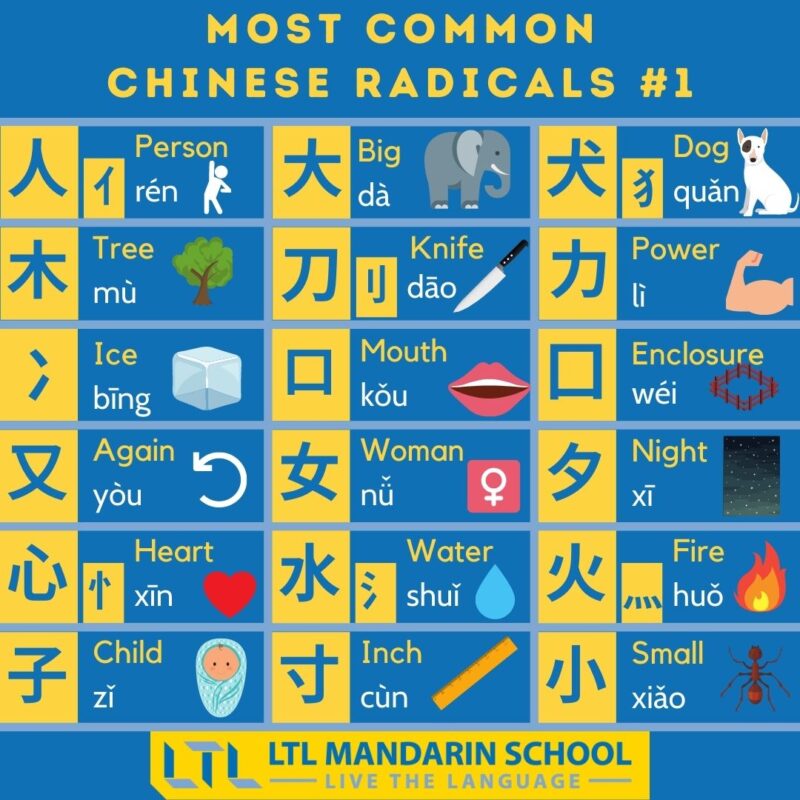How Long Does It Take To Learn Chinese?
How Long Does It REALLY Take To Learn Chinese? The Truth Revealed
If you are thinking about signing up for Chinese classes, you might be wondering: how long does it take to learn Chinese?
Though the answer largely depends on your study habits as well as your goals, most experts agree that it takes around 2,200 class hours for an English speaker to learn Chinese.
That is what the US Foreign Service Institute (“FSI”) has pegged as necessary for learning Chinese fluently. Considering full-time study of 5 class-hours per weekday, this would come out to 88 weeks of continuous full-time study.
It is important to note, though, that the 2,200-hour figure refers to class hours.
This is an important distinction to make as it does not include time spent outside of class doing homework, preparing for class, reading Chinese books, watching Chinese media, or otherwise preparing for class.
Time to Learn Chinese || The Five Stages of Learning Chinese
Time to Learn Chinese || Why Is Chinese Harder Than Other Languages?
Time to Learn Chinese || Is Chinese Really That Hard?
Time to Learn Chinese || Can I Learn Chinese in a Year?
Time to Learn Chinese || How to Learn Chinese Faster?
Time to Learn Chinese || FAQs
If we consider 2-3 hours of outside prep, then the 2,200 hour figure balloons to 6,600-8,800 total study hours.
If you are thinking about learning Chinese, do not panic.
Keep in mind that everyone has different Chinese learning objectives, and the 2,200 class-hour marker set by the FSI is meant for training US diplomats who will be doing official business on behalf of the US Government.
The amount of hours it will take you to learn Chinese will largely depend on your objectives as well as your study routine.
While learning Chinese is indeed a hard language, it is far from impossible to learn. These days, there are countless resources and materials available to help anyone learn Chinese with ease.
So, in order to get a more accurate idea of how long it will take you to learn Chinese, you must first define what your language goals are and then come up with the best study strategy for you.
The Five Stages of Learning Chinese
The 2,200 hour figure from the FSI indicates how long it will take someone to get to native proficiency. This may be well beyond what the average Chinese learner is trying to achieve.
This is why it is very important to figure out what your goals are before you commit to learning Chinese.
There is a big difference between wanting to learn a few essential Chinese phrases to get by on your trip to China and learning Chinese to be able to have full conversations with your in-laws.
The FSI has identified five different levels of proficiency:
- Elementary Proficiency
- Limited Working Proficiency
- Professional Working Proficiency
- Full Professional Proficiency
- Native/Bilingual Proficiency
The 2,200 class hour marker is meant to get you through the fifth level of Native/Bilingual Proficiency.
That means that if you are interested in having a better rapport with your Chinese clients, the second stage of Limited Working Proficiency might be good enough for you.
If you’re looking to do business in China, then the third stage of Professional Working Proficiency should be sufficient.
In either case, you should be able to achieve your target proficiency level in far fewer than 2,200 class hours.
Why Is Chinese Harder Than Other Languages?
The FSI has identified Mandarin Chinese (and Cantonese, too) as a Category V language, meaning it is in the absolute hardest category of languages to learn for English speakers.
There are many reasons why Chinese is so hard for English learners.
First, Chinese does not have a phonetic alphabet as English does.
That means that there is NOT a specific letter that corresponds to a specific sound.
This means that Chinese speakers must memorise thousands of unique characters before being able to read and write.
Memorising Chinese characters may just be the single biggest obstacle to learning Chinese.
The second biggest obstacle for English speakers is probably the Chinese tones.
Since Chinese is a tonal language, it can take some time for learners to get used to correctly identifying the tones when speaking and listening to Chinese.
This is why elementary and intermediate learners can get frustrated when natives can’t seem to understand what they are saying, even after months or years of study.
It can take a long time of working on improving listening comprehension before learners can identify and reproduce the Chinese tones.
Is Chinese Really That Hard?
Despite the difficulties of learning Chinese, it is not an impossible language to learn. Far from it in fact!
If it was, then China’s literacy rate would not be amongst the highest in the world.
The truth is, some aspects of Chinese will seem very easy to English speakers.
For starters, Chinese grammar is very simple and straightforward, especially compared to other grammar-heavy languages like Japanese or German.
One aspect that Chinese learners find most relieving is that there are no conjugations in Chinese.
That means that you do not need to write or pronounce a verb any differently no matter what tense it is in.
Additionally, there are only just over 400 unique syllables in the entire Chinese language. That’s significantly fewer than the approximately 15,000 syllables in English.
The truth is, learning any language involves some level of difficulty, but with patience and dedication, there is no need to fear.
Can I Learn Chinese in a Year?

Though many people may be super eager to learn Chinese, either because they have a huge business opportunity or because they want to attend a specific educational program, it is generally not a good idea to rush through your Chinese classes.
Since learning a language involves more than just memorising vocabulary and a few grammar patterns, it is best to adopt a consistent study schedule that allows enough time for language absorption.
That is, you do not want to spend 8+ hours a day in a classroom if you want to achieve proficiency as soon as possible.
You also need to spend time on passive activities like listening to Chinese music, watching Chinese dramas, reading Chinese graded readers, and otherwise developing your 语感 yǔgǎn—your sense of the language.
With that said, we do offer intensive online Chinese language courses and do have some students who have passed the HSK 6 in one year.
How to Learn Chinese Faster?
If you’re looking to learn Chinese as soon as possible, the best thing you can do is work with an individual tutor.
Taking 1-on-1 classes will ensure that you maximise your class time while a professional teacher helps plan out your study roadmap and helps you hammer out your weaknesses.
Get back to the basics with these 7 simple tips for learning Chinese.
If you’re serious about learning Chinese as fast as possible, you should consider our extreme immersion program, where you will be subject to speaking and listening to Chinese virtually 24/7.
That’s right, you will be submerged in Chinese culture and will have to learn Chinese the hard way—no foreigners, no English, no Starbucks!
Regardless, the most effective study plan is a consistent one. Make sure that you are setting sustainable goals for yourself that will prevent burnout.
Diversify your study plans and incorporate fun activities into your schedule to keep things interesting. Most importantly, make sure you enjoy the process and Live The Language!
Time to Learn Chinese || FAQs
Is Chinese harder than other languages?
Chinese Mandarin is classified as a Category V language by the US Foreign Service Institute (“FSI”) meaning it is in the hardest category of languages to learn for English speakers.
Is Chinese hard to learn?
While Chinese has a reputation for being difficult to learn, in truth, with dedication and the proper instruction learning Chinese can be a straightforward process.
Particularly with immersion into the language learners (of all ages) can progress at a steady speed.
Can I learn Chinese in a year?
YES!
Here at LTL, we’ve seen both part-time and full-time students make tremendous progress both online and in person.
For immersion programs, we typically advise that students can reach HSK 4 in 12 months and possibly even HSK 5 with outside classroom study such as homestay programs.
What is a rough timeline to become very proficient at Chinese?
Though the answer largely depends on your study habits as well as your goals, most experts agree that it takes around 2,200 class hours for an English speaker to learn Chinese.
Considering full-time study of 5 class-hours per weekday, this would come out to 88 weeks of continuous full-time study.
How can I learn Chinese faster?
The fastest way to learn Chinese is to be immersed with guidance from qualified language instructors.
A good language instructor will work with you at your level and give you valuable instant feedback to make sure you’re always on track with your learning.
The immersion into Chinese is where students begin to excel as they’re able to gain confidence and live the language in real-world situations.
Want more from LTL?
If you wish to hear more from LTL Mandarin School why not join our mailing list.
We give plenty of handy information on learning Chinese, useful apps to learn the language and everything going on at our LTL schools.
Sign up below and become part of our ever growing community.
BONUS | Come to Singapore and learn Chinese with LTL in person. Our student community is growing by the week.
![[𝗢𝗟𝗗] LTL Singapore Logo](https://old.ltl-singapore.com/wp-content/sites/4/cropped-logo-web-header-480x48-480x48.png)





